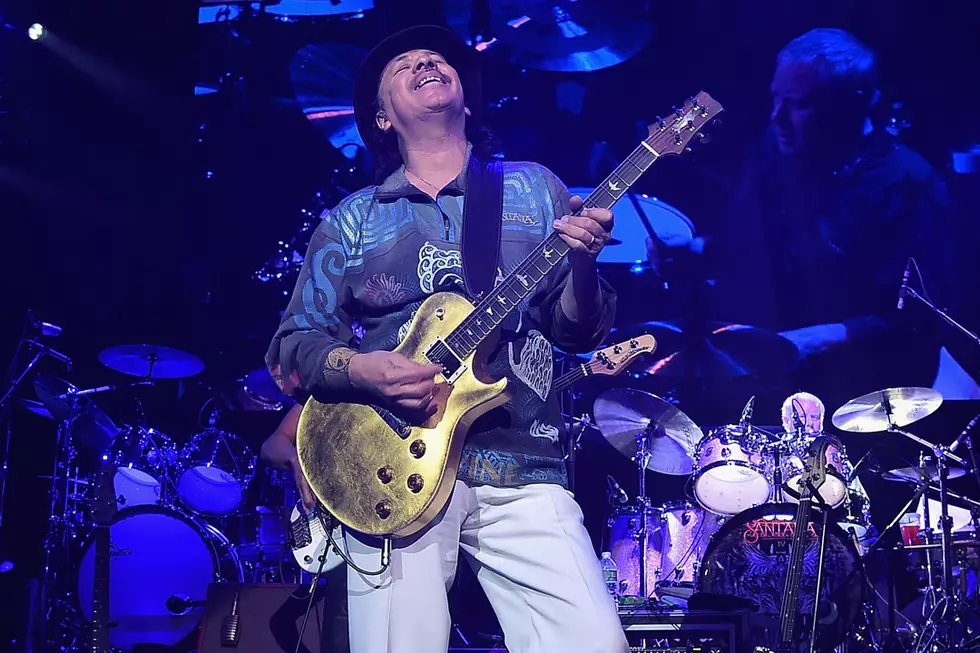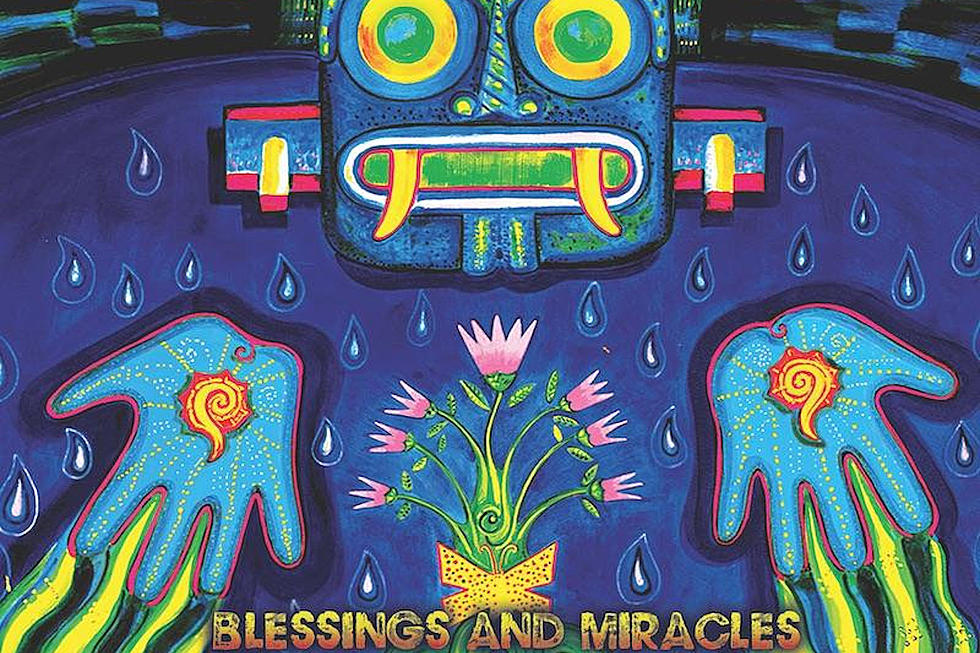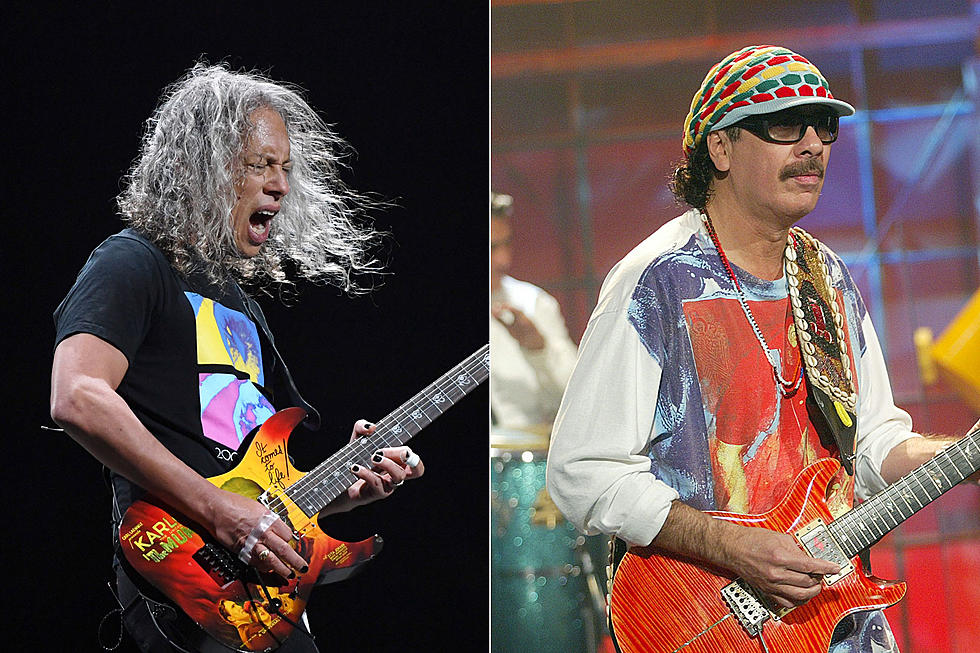
Carlos Santana Won’t Forget First ‘Black Magic Woman’ Performance
Carlos Santana said he was transported back to the first time he played “Black Magic Woman” during every performance of the song.
Written by Fleetwood Mac’s Peter Green and released by that band in 1969, the version recorded by Santana the following year was included on their album Abraxas and has become a signature track.
“I swear to you, and this for real, whenever we play ‘Black Magic Woman,’ I remember the first time we played it in a soundcheck in Fresno in a parking lot,” he told Rolling Stone in a new interview. “Gregg Rolie brought the song from Fleetwood Mac, Peter Green. And I remember saying, ‘Hmm, I can bring a little bit of Otis Rush here and a little bit of Wes Montgomery here.’
“Because I just think like that. It’s kind of like a chef, bring a little bit of oregano and jalapenos and garlic and onions. So to this day, when I play ‘Black Magic Woman,’ I think of Otis Rush and Fresno in a parking lot. And it gives me the same results.”
Listen to Santana's 'Black Magic Woman'
Santana is currently signed up to appear at two events marking the 50th anniversary of the Woodstock festival – one in the original Bethel Woods location, and one under production by original promoter Michael Lang, which remains unconfirmed. Asked to compare the various Woodstock memorial events that have taken place over the decades, Santana said, “I think the other ones were more like the stock market than Woodstock.
“It seemed like people were more invested in Coca-Cola or Pepsi-Cola than the music. The music was played for maybe different reasons than the first one. The first one was done, and I mean this in the most respectful way, with a bunch of long-haired freaks that wanted something different than what was happening in Vietnam or politics or religion. These people wanted the same things we want today.”
Santana noted, “I think it was Jim Morrison who said, ‘We want the world and we want it now,’ but we want the world with peace, harmony, and unity. We want that world. That’s why we’re still talking about the original one. I think there’s something sacred about not playing to be famous or be rich but to play music.
"People could say it was a divine disaster, but humans showed we could coexist together, and we could share, and we could hug each other and comfort each other, and I think that is why we’re still talking about the original Woodstock. It had a different intentionality.”
More From Classic Rock Q107








![Wanna Learn To Play Guitar Like Carlos Santana? [VIDEO]](http://townsquare.media/site/187/files/2020/12/guitar4.jpg?w=980&q=75)

